Learn when babies can eat eggs, how to safely introduce them, and a nutrient-rich puree and BLW-method to serve them.
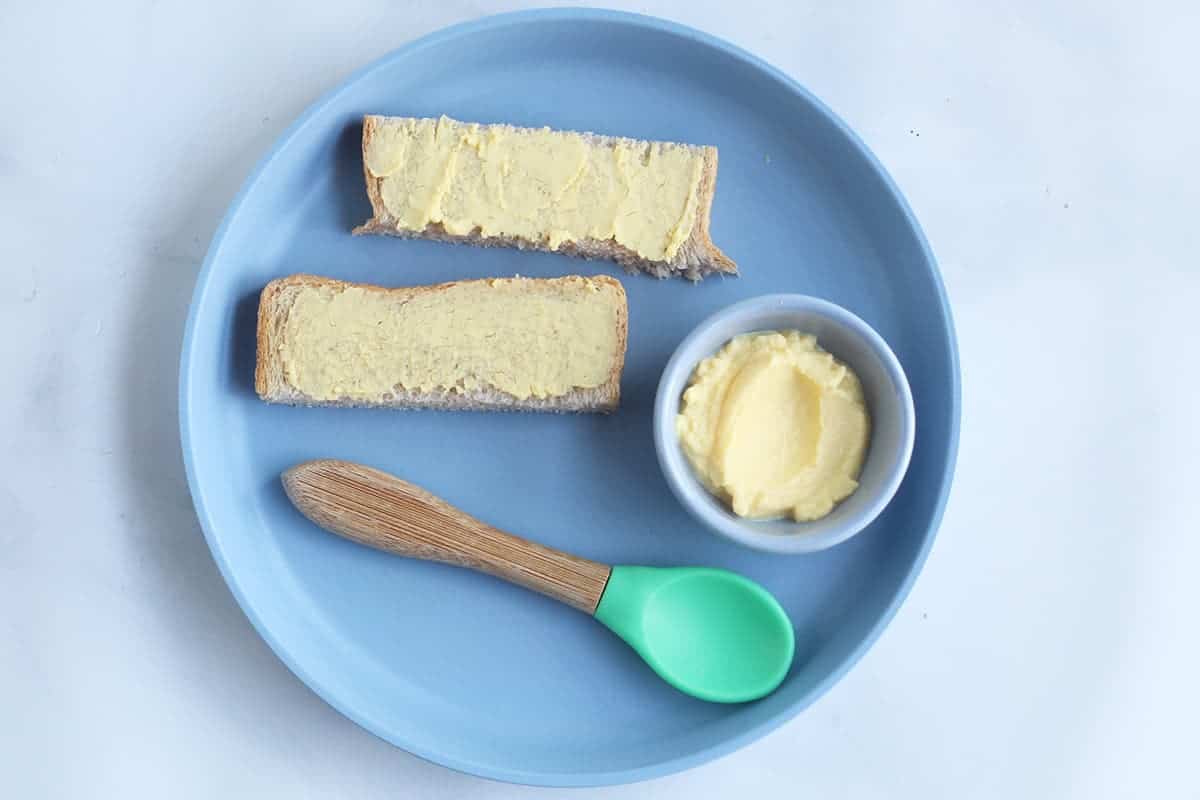
When to Introduce Eggs to Baby
Eggs are one of the most nutrient dense foods around and the yolks are rich in the healthy fats that young kids need for proper brain development. Eggs are also one of the top 8 most common food allergens, so there are a few things to consider when introducing them to baby for the first time.
There is no evidence that waiting to introduce eggs to babies decrease the likelihood of them developing a food allergy and it’s recommended that we introduce them soon after starting solids—along with other potential allergens like learning when can baby have peanut butter.
But, if the baby has severe eczema or your family has a history of food allergies, you should check with your pediatrician. (Peanut allergy testing is recommended for babies with eczema and egg allergies.)
(You may also like Baby Pancakes, Baby Muffins, Baby Cookies, and Sweet Potato Teething Biscuits.)
Table of Contents
Baby Food Ideas with Eggs
When cooked, eggs are a perfect texture for a baby food since they are very soft. I like starting with hard-cooked egg yolks—both to make a puree and to serve BLW style on toast—then progressing to scrambled eggs and egg muffins.
See below for ideas on how to introduce eggs.
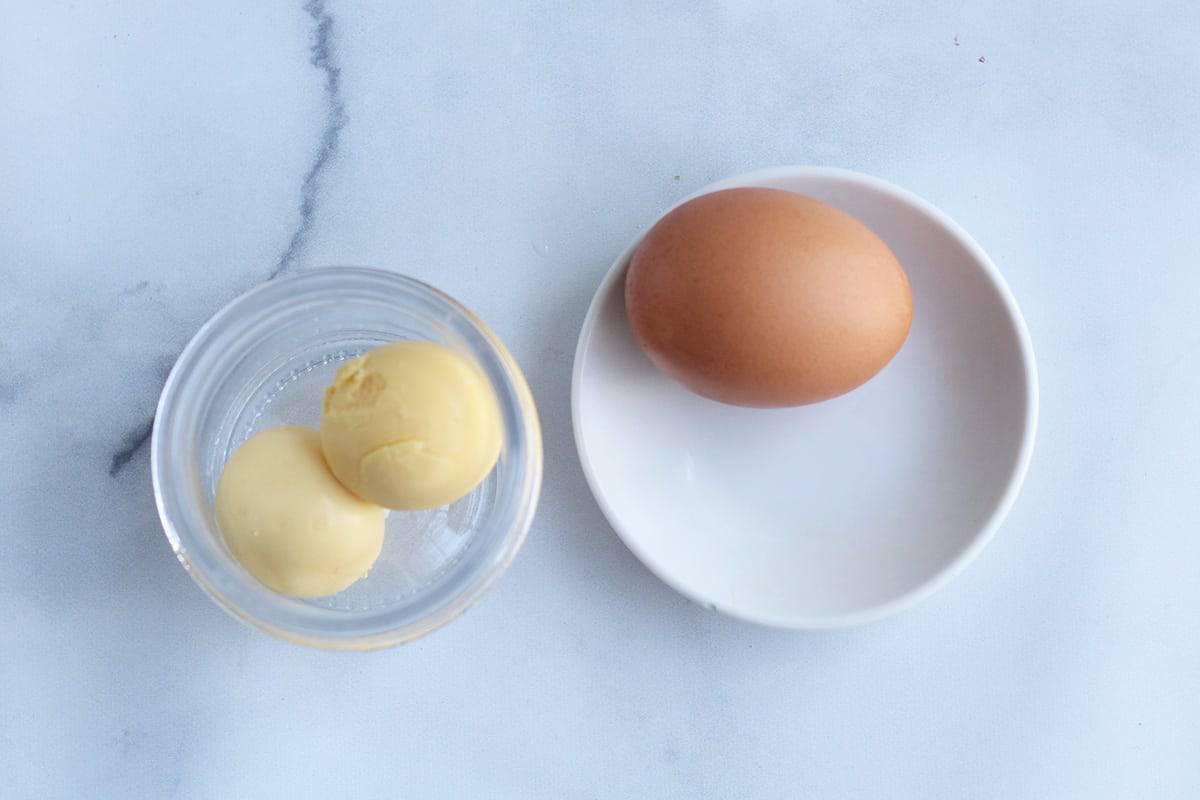
Ingredients You Need
To make easy egg yolk puree, you just need hard cooked egg yolks to use this method. Any kind of egg will work, but eggs from grass-fed chickens may have more healthy omega fats.
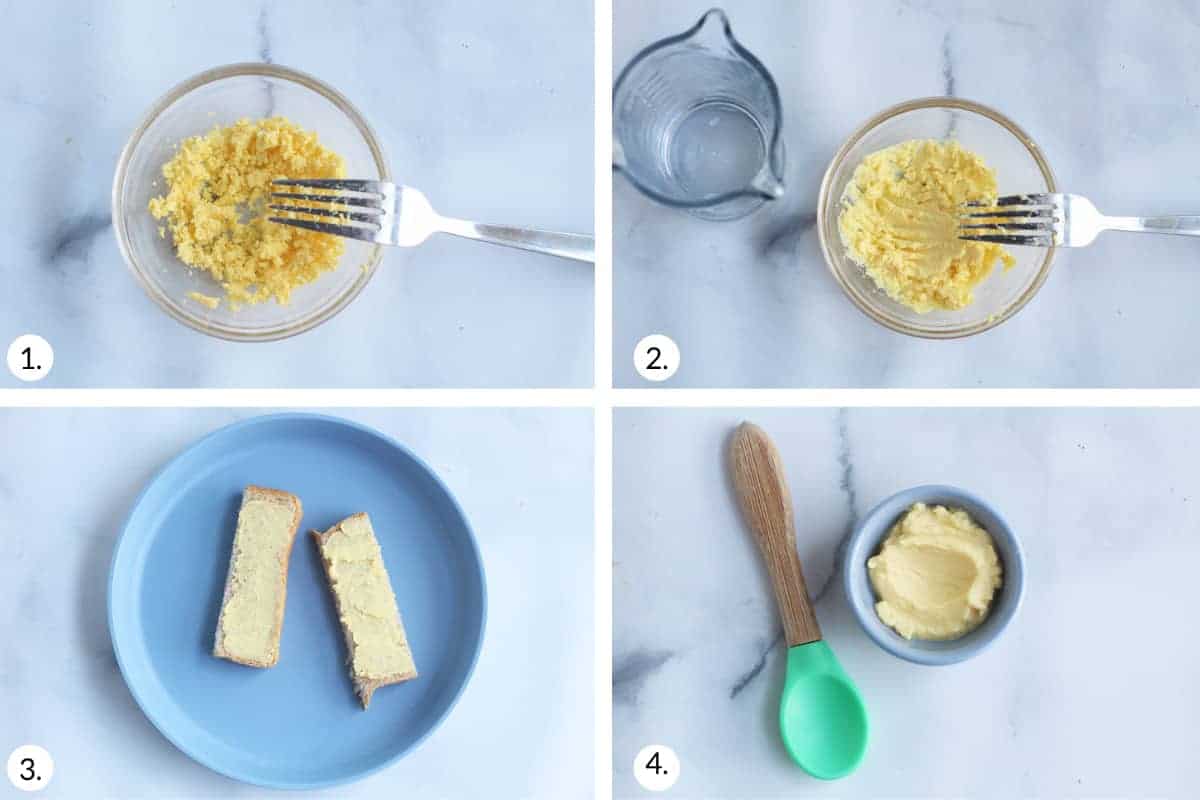
Step-by-Step Instructions
Here’s a look at how to make this easy baby food with eggs. Scroll down to the bottom of the post for the full information.
- Hard cook the eggs. Cool, peel, and place the yolk into a bowl. Mash.
- Add a little water at a time and mash to form a thin puree.
- Spread the puree onto a stick of lightly toasted bread as a baby-led weaning food.
- Or offer with a spoon.
TIP: You can store this in an airtight container in the fridge for up to 3 days. Stir before serving.
Frequently Asked Questions
Babies can eat scrambled eggs at about 8-9 months, or when they can pick up small pieces with their fingers. Aim for very, very soft and small pieces.
The American Academy of Pediatrics recommends that we introduce eggs soon after starting solids at 6 months. Check with your pediatrician if you have a family history of food allergies, baby has a peanut allergy, or baby has had eczema.
You can introduce eggs to baby using a hard-cooked egg yolk puree either on a spoon or spread onto toast sticks.
You can offer eggs to a 7 month old as a hard cooked egg puree or spreading the puree onto toast. You can also mix the puree into a baby food combination with sweet potato puree, avocado puree, baby oatmeal, or yogurt.
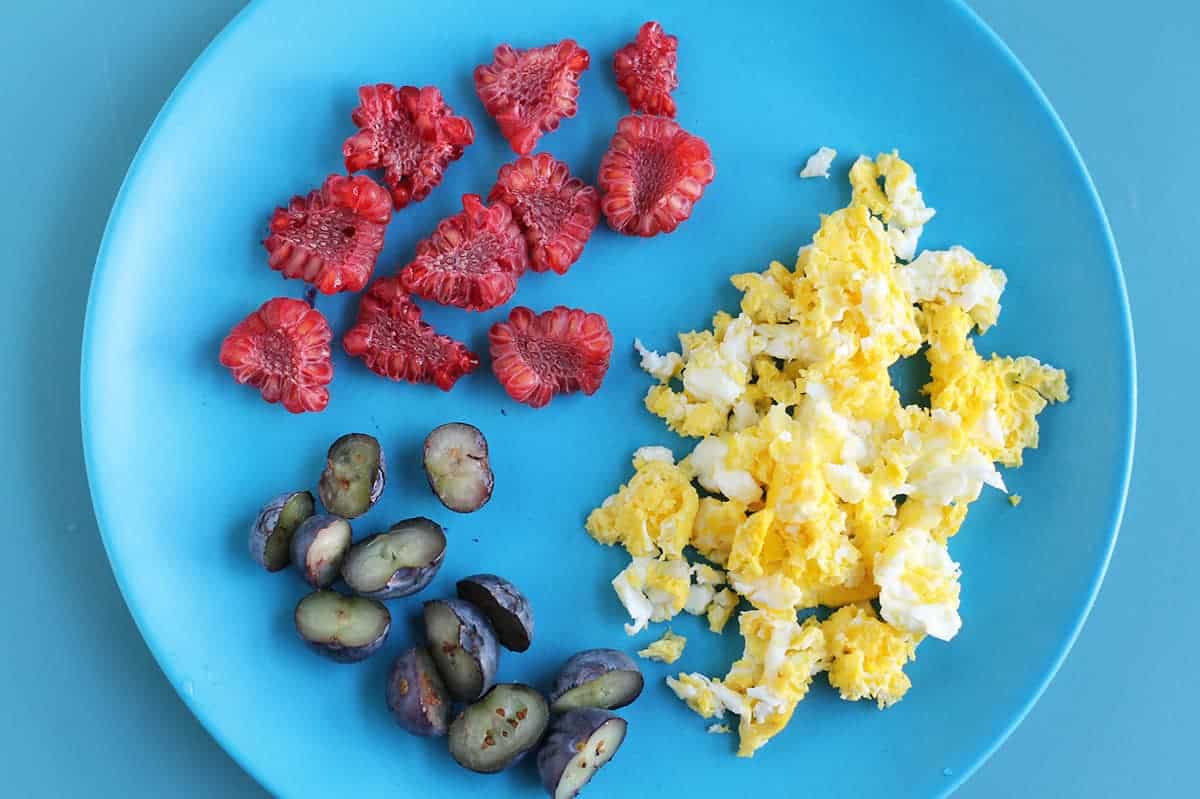
Scrambled Eggs for Babies
Scrambled eggs are a great early finger food since they are soft, easy to chew, and nutrient-dense. They’re also easy to store for future meals in the fridge!
TIP: Find my method for easy scrambled eggs.
Egg Muffins for Kids
Egg muffins, which are basically a mini frittata, are one of my favorite breakfasts and snacks for kids. These can be offered BLW-style where you’d offer it whole and baby would chew on it (swapping it out for a new one if the piece gets too small) or you can dice it as a finger food for kids 8-9+ months.
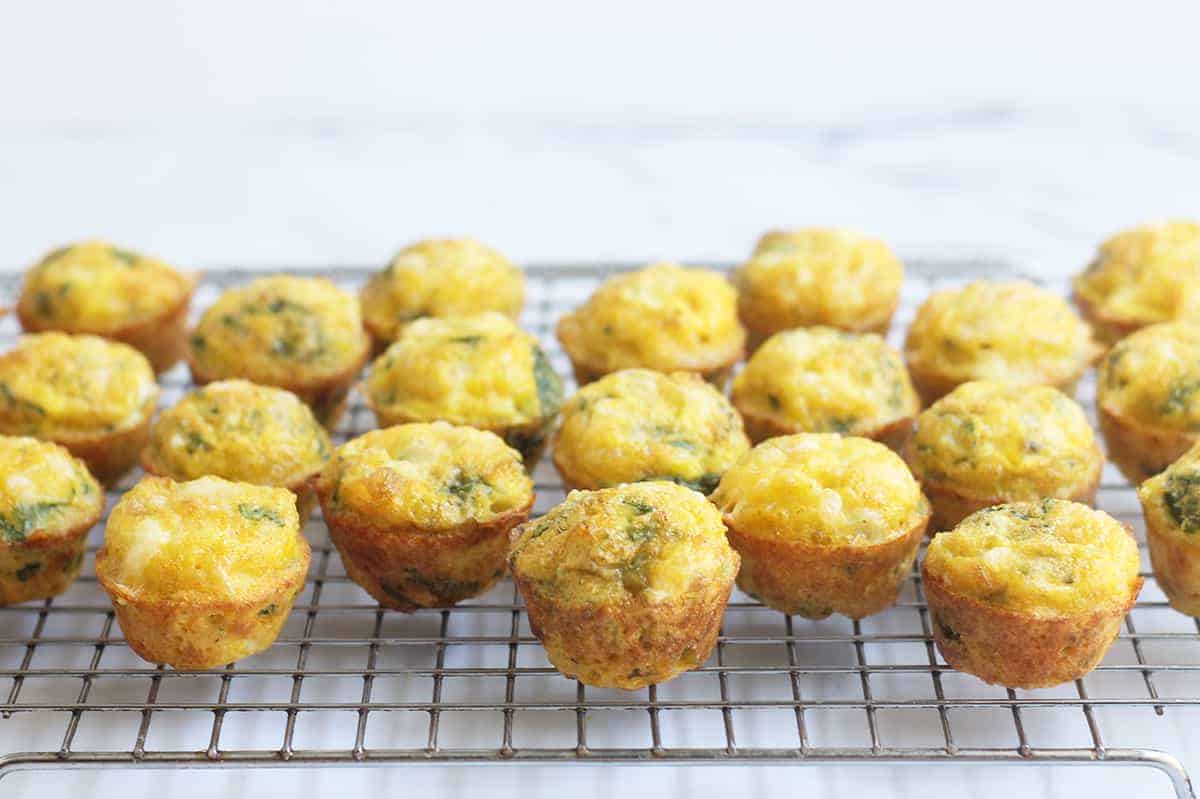
TIP: Try my Egg Muffins with Spinach and my Mini Egg Muffins with Veggies.
Best Tips for Success
- Plan to introduce eggs to baby soon after starting solids at 6 months.
- If baby has or had eczema or there’s a history of food allergies, talk to your pediatrician before you start.
- Offer egg yolk puree with a spoon or spread onto a piece of lightly toasted bread about the size of two fingers.
- Offer soft scrambled eggs to babies around 8/9 months.
- Offer egg muffins, diced, to babies around 8/9 months.
- You may also like my Best Early Finger Foods for Baby.
- Find my full guide to easy ways to serve eggs to toddlers here.
- You may also like my Peanut Butter Baby Food, my Homemade Baby Food, and my guide to Baby Led Weaning Foods.
Related Recipes
I’d love to hear your experience with this method if you try it, or any questions you have, so please comment below!
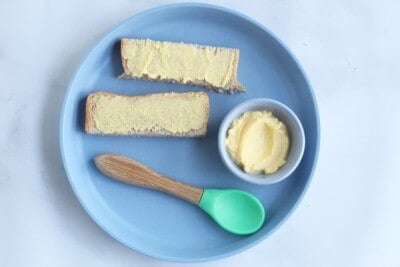
Easy Egg Yolk Puree (with BLW option)
Ingredients
- 2 large eggs
- 1 slice whole wheat bread (optional)
Instructions
- Add the eggs to a small saucepan and add cold water, covering the eggs by 2 inches.
- Bring the water to a boil over high heat. When the water boils, turn off the heat and cover the pot. Set a timer for 12 minutes.
- When the timer goes off, drain the water out of the pot and place the eggs into a bowl with cold water and ice. Let cool.
- Peel the eggs and place the yolks into a bowl. (Use the egg whites for yourself or an older child.) Mash with a fork, adding 1 teaspoon water (or breastmilk or formula) at a time to create a soft and smooth puree.
- Serve with a spoon or lightly toast the bread, cut into sticks about the size of two fingers, and spread on the puree for a blw style food.
Notes
- Store any leftover puree in an airtight container for up to 3 days.
- Plan to introduce eggs to baby soon after starting solids at 6 months.
- If baby has or had eczema or there’s a history of food allergies, talk to your pediatrician before you start.
- Offer egg yolk puree with a spoon or spread onto a piece of lightly toasted bread about the size of two fingers.
- You can also mix the puree into a baby food combination with sweet potato puree, avocado puree, baby oatmeal, or yogurt for 7/8+ month babies.
- Offer soft scrambled eggs to babies around 8/9 months.
- Offer egg muffins, diced, to babies around 8/9 months.
- Hard-cooked egg whites are very chewy and won’t be easy for babies to eat, so set those aside for yourself or an older child.
- Trust baby’s hunger and stop a meal when they turn their head, fuss, or otherwise communicate they are done eating.
Nutrition
This post was first published April 2021.

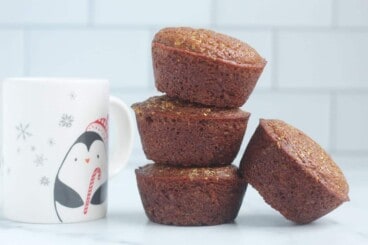
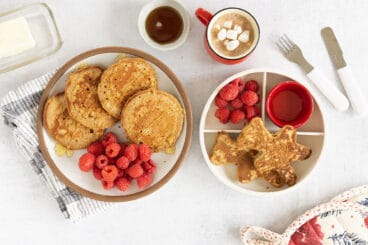

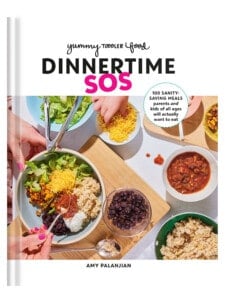
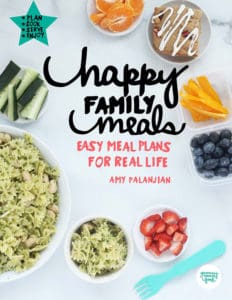
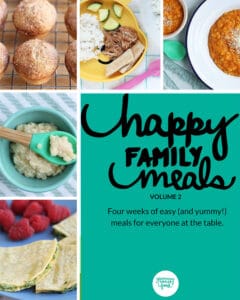
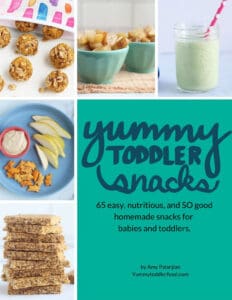




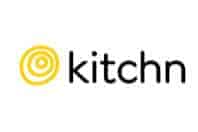
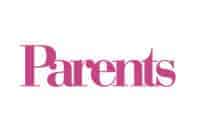



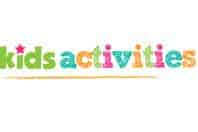

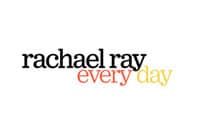
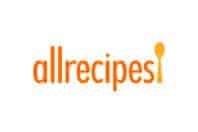

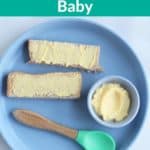
All comments are subject to our Terms of Use.